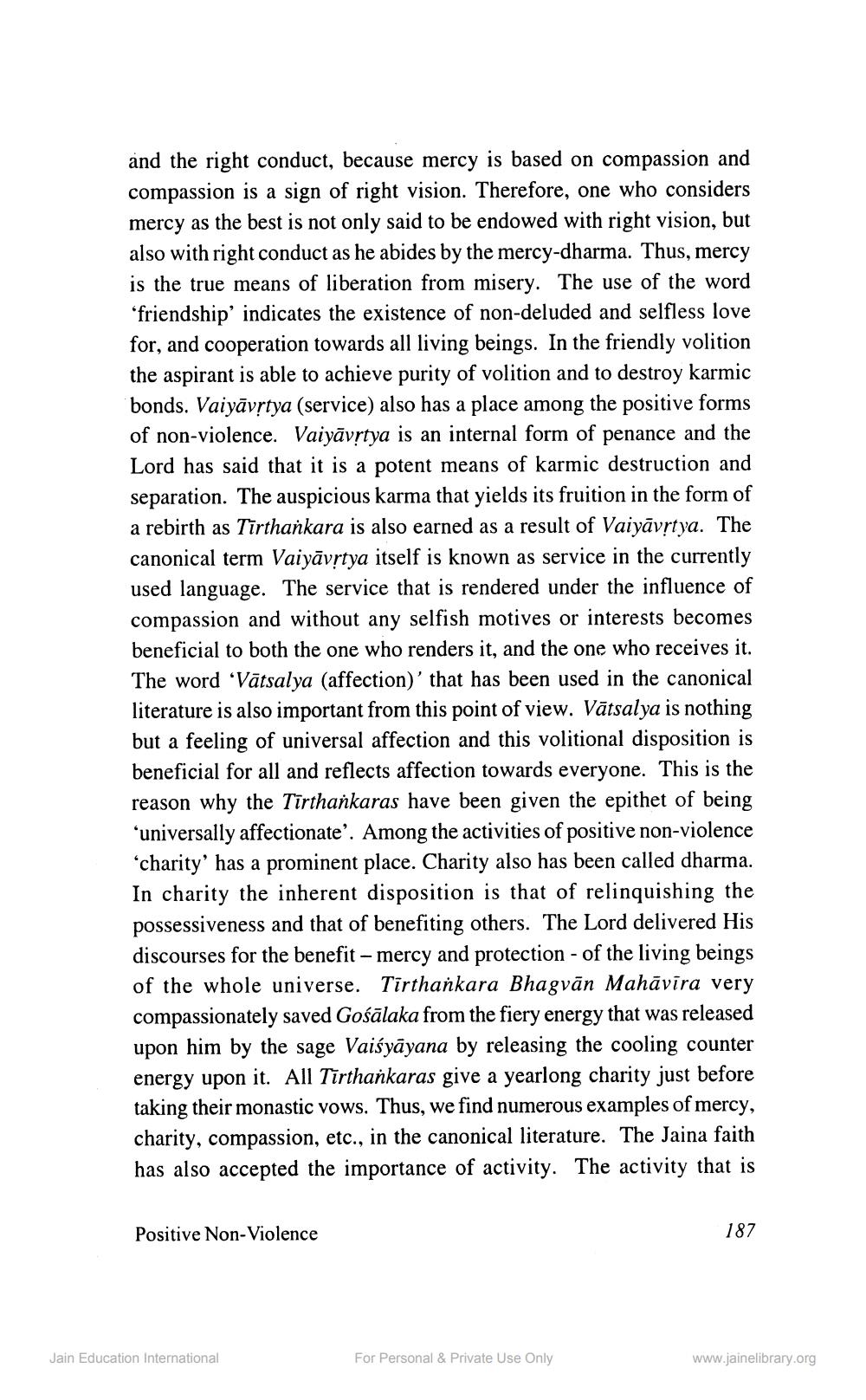________________
and the right conduct, because mercy is based on compassion and compassion is a sign of right vision. Therefore, one who considers mercy as the best is not only said to be endowed with right vision, but also with right conduct as he abides by the mercy-dharma. Thus, mercy is the true means of liberation from misery. The use of the word 'friendship' indicates the existence of non-deluded and selfless love for, and cooperation towards all living beings. In the friendly volition the aspirant is able to achieve purity of volition and to destroy karmic bonds. Vaiyāvrtya (service) also has a place among the positive forms of non-violence. Vaiyāvrtya is an internal form of penance and the Lord has said that it is a potent means of karmic destruction and separation. The auspicious karma that yields its fruition in the form of a rebirth as Tīrtharkara is also earned as a result of Vaiyāvrtya. The canonical term Vaiyāvrtya itself is known as service in the currently used language. The service that is rendered under the influence of compassion and without any selfish motives or interests becomes beneficial to both the one who renders it, and the one who receives it. The word “Vātsalya (affection)' that has been used in the canonical literature is also important from this point of view. Vātsalya is nothing but a feeling of universal affection and this volitional disposition is beneficial for all and reflects affection towards everyone. This is the reason why the Tīrthańkaras have been given the epithet of being ‘universally affectionate'. Among the activities of positive non-violence ‘charity' has a prominent place. Charity also has been called dharma. In charity the inherent disposition is that of relinquishing the possessiveness and that of benefiting others. The Lord delivered His discourses for the benefit – mercy and protection - of the living beings of the whole universe. Tirthańkara Bhagvān Mahāvīra very compassionately saved Gośālaka from the fiery energy that was released upon him by the sage Vaiśyāyana by releasing the cooling counter energy upon it. All Tīrthankaras give a yearlong charity just before taking their monastic vows. Thus, we find numerous examples of mercy, charity, compassion, etc., in the canonical literature. The Jaina faith has also accepted the importance of activity. The activity that is
Positive Non-Violence
187
Jain Education International
For Personal & Private Use Only
www.jainelibrary.org




